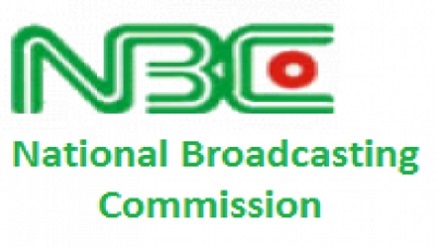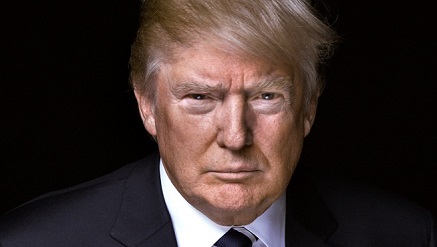Broadcasting
BON, NBC Says Nigeria’s Digital Broadcast Migration is Slow

Broadcasting Organisation of Nigeria (BON) has said that, Nigeria has not achieved up to 10 % digitalization of its broadcast industry, owing largely to lack of funds.
This is just just two months to the expiration of the deadline as the International Telecommunications Union (ITU) had set June 17 this year for all countries under it to transit from analogue to digital broadcast.
Mr Shola Omole, BON chairman, said the ITU would neither penalize the country nor shut it out of broadcasting even as it was becoming clearer that the country would not meet the deadline.
He was addressing a press conference in Abuja yesterday to announce a two day International Digital Broadcasting Summit to be held on May 6 and 7.
Omole said since many other African countries had not achieved the digital switch over, Nigeria’s inability to do so would not constitute any problem to our neighboring countries.
Speaking in an interview after the press briefing, Emeka Mba, director general of National Broadcasting Commission (NBC) said it was doubtful if Nigeria would switch over by June 17.
He said lack of funds inhibited the switch over project as set top boxes are not available yet.
He said the devices’ manufacturers needed incentive from government before they could start production but they have got nothing as NBC was not buoyant enough to give them.
Mr Segun Olaleye, executive secretary of BON, said Nigeria would have to phase out analogue gradually through multicasting.
Speaking on the summit, the BON chairman, who is also the DG of NTA, said the 2-day industry summit will provide broadcasters as well as other industry stakeholders in Nigeria with crucial information and industry knowledge on the opportunities and challenges in the evolving digital age.
Broadcasting
Nigeria Eyes $20Bn Annual Revenue from Space Economy – Minister

Federal government has announced its target of generating over $20bn annually from Nigeria’s rapidly evolving space economy, leveraging a newly launched space security platform and comprehensive regulatory reforms.

Speaking at the launch event in Abuja on Tuesday, Chief Uche Geoffrey Nnaji, minister of Innovation, Science and Technology, unveiled the government’s strategic plans to capitalize on space technologies for national revenue generation, particularly in key sectors like oil monitoring and maritime surveillance.
“With space-based surveillance, we can detect vessels entering Nigerian waters—even those that switch off their transponders to evade detection. We’ll be able to track them, ensure compliance, and collect the appropriate fees. This initiative alone could yield over $20 billion annually,” he said.
The Minister emphasised that Nigeria’s space economy is no longer a futuristic dream but a present-day economic lever.
“Space is no longer the domain of dreamers alone—it is now the frontier of serious business, innovation, and national security,” he declared.
“Our task is clear: to establish a transparent, well-regulated ecosystem where public and private actors—from startups to established institutions—can thrive,” he added.
The new space security platform is tied to the enforcement of Nigeria’s 2015 Regulations on the Licensing and Supervision of Space Activities.
Section 4(1), mandates that no one “shall carry out activities to which the Regulations apply except under the authority of a license granted by the National Space Council.”
These regulations aim to hold local and foreign operators—such as Starlink and DSTV—accountable under Nigerian law.
“Currently, some pay appropriate fees, while others contribute minimally, shortchanging Nigerians. This new regulatory framework will address that imbalance,” Nnaji stated.
Dr. Matthew Adepoju, director general, National Space Research and Development Agency (NASRDA), echoed the Minister’s sentiments, highlighting the economic, security, and youth empowerment potential of the sector.
“Nigeria must remain a forward-thinking nation. We must ensure that space activities within our jurisdiction are properly regulated, commercially optimized, and aligned with international best practices,” Adepoju said.
According to NASRDA, Nigeria can generate about N200bn annually from space-related activities, with potential growth rates of 18–20 per cent per year.
The workshop, which gathered key stakeholders from government, academia, and the private sector, marks a pivotal shift in Nigeria’s approach to space as a tool for development.
It also underscores the urgency to reform existing legal frameworks.
Dr. Olisa Agbakoba, legal expert, who also spoke at the event, criticized Nigeria’s outdated space laws.
“Our current laws are outdated. The NASRDA Act is not a true space law. We need a clear economic strategy for space, legal reform, and an updated National Space Policy,” he said.
Agbakoba proposed creating a Center for Space Law and emphasized that space should contribute at least 2% to Nigeria’s GDP.
“Let’s learn from countries like the UAE. Why not aim for Nigerian astronauts—male and female?” he asked.
Mrs. Esuabana Asanye, permanent secretary of the Ministry, while unveiling the new NASRDA logo, positioned the current phase as a new era in Nigeria’s space journey: “We are now turning the page from the first 25 years, and ushering in a new era—one that will redefine Nigeria’s presence in space.”
Broadcasting
Trump Strikes with Tariffs, Nigeria Stands Down

By Lukman Otunuga, Senior Market Analyst at FXTM
On Wednesday 9th April, US reciprocal tariffs go into effect on numerous countries including Nigeria.

Washington has slapped 14% tariffs on the country’s exports, but Nigeria’s government has decided to stand down on any retaliation. It remains to be seen whether this was a strategic move to prevent further tariffs from the United States. Nevertheless, these tariffs may impact growth given how Nigeria’s exports to the US have ranged between $5-6 billion annually.
One could argue that Nigeria is somewhat insulated given how over 90% of exports are comprised of crude oil and gas products. Nevertheless, growing concerns around Trump’s trade war tipping the global economy into a recession is a major risk for emerging markets.
Beyond trade developments, Nigeria remains exposed to volatile oil prices. Last week, Brent and WTI both recently logged their steepest weekly losses in over a year. Oil prices remain pressured by deepening trade tensions and OPEC+ announcing an unexpectedly large supply boost. Crude oil has shed over 13% this month, dragging year-to-date losses closer to 15%. Such a development may complicate the government’s ability to implement the 2025 budget based on oil prices at $75 a barrel.
The sharp selloff in oil could mean more pain for the Naira which is among the worst performing emerging market currencies. Naira has shed 4% year-to-date versus the dollar and may extend losses if lower oil translates to falling foreign exchange reserves.
On the data front, Nigeria will reveal its latest inflation figures in mid-April. Back in February, the annual inflation rate dropped to 23.2% to its lowest level since June 2023 while food inflation also cooled to 23.5% – its lowest rate since September 2022. While the decline in CPI has been attributed to a technical adjustment, further signs of cooling price pressures could spark discussions around potential CBN rate cuts in the second half of 2025.
Broadcasting
MTN Battles Netflix, Showmax with New Streaming Platform

MTN Group, one of Africa’s leading mobile network operators, has announced a strategic partnership with UK-based video software provider Synamedia to develop a new streaming platform tailored for mobile and fixed broadband subscribers across the continent.

Through the partnership, MTN aims to enhance digital content accessibility and cater to the evolving preferences of African audiences.
“We see a unique opportunity to transform video consumption in Africa with high-quality, accessible, and relevant content,” said Selorm Adadevoh, Group Chief Commercial Officer at MTN Group.
“This partnership enables us to leverage cutting-edge technology and deep customer insights to enhance entertainment experiences and drive digital inclusion.”
With the new streaming platform, MTN enters the streaming market in competition with streaming giants like Netflix, Showmax, Multichoice, and Prime Video.
By leveraging Synamedia’s advanced cloud-based technologies, the service will deliver linear television and video-on-demand content.
It is designed to support various monetisation models, including subscriptions, ad-supported content, and free streaming channels with targeted advertising.
The streaming service will offer locally adapted content based on a curated content strategy.
Each market will benefit from content curated to reflect local cultures, languages, and viewing habits, ensuring that viewers across the continent resonate with its offerings.
“Thanks to MTN’s leadership and innovation, smartphone owners across Africa will be able to enjoy innovative linear TV and on-demand video,” Paul Segre, Synamedia, CEO, said.
“By taking advantage of the breadth of our integrated, cloud-based portfolio to quickly deploy new services at scale, MTN will be able to create a groundbreaking set of offerings for customers and viewers that will drive new revenues.”

 News2 days ago
News2 days agoAOT Issues Bench Warrant against Sanusi, Aero Contractors MD

 News2 days ago
News2 days agoUS Cancels Visas for All South Sudanese Passport Holders

 News2 days ago
News2 days agoMeningitis Outbreak Kills 151 in Nigeria – NCDC

 News2 days ago
News2 days agoSERAP Calls on Tinubu to Reject $1.08Bn Loan, Probe Missing Funds

 News2 days ago
News2 days agoAfrimash Launches USSD Code to Revolutionize Poultry Farming and Combat Counterfeit Farm Produce

 News1 day ago
News1 day agoFG to Invest in Cutting-edge Broadcast Technology

 News1 day ago
News1 day agoHow KongaFM 103.7 Helped Cure My Insomnia Challenge

 Broadcasting1 day ago
Broadcasting1 day agoMTN Battles Netflix, Showmax with New Streaming Platform



























